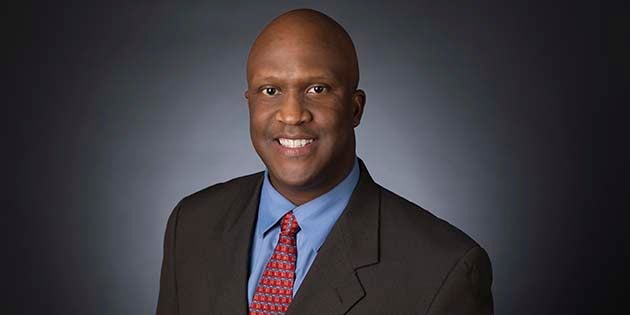As a young African-American male growing up and attending public schools in Sumter, S.C., Kendall Deas saw firsthand how opportunities for advancement could be limited by race and socioeconomic status.
But due in part to the support of his family and teachers and his own tenacity and drive, Deas managed to overcome gaps in the education system and went on to earn several academic degrees from some of America’s leading institutions such as Georgetown University, Dartmouth College, and Washington University in St. Louis. He joined the College of Charleston in 2013 as an adjunct professor in the School of Education, Health, and Human Performance and was appointed in the fall of 2015 as a faculty advising fellow in the Honors College.
An expert in education policy research, Deas is focused on addressing inequities that exist in schools, especially Title I schools that have high percentages of children from low-income families. To that end, he’s ecstatic about recently being named a 2016-2017 New Leadership Academy Fellow by the University of Michigan-Ann Arbor and its National Center For Institutional Diversity.
A partnership with the American Association for Hispanics in Higher Education, the fellowship program annually selects about 20 senior-level faculty and administrators from across the country for a one-year, non-residential fellowship that prepares them to eventually assume top leadership positions in higher education.
As a relatively young faculty member, Deas was caught off guard by his selection. “I was pleasantly surprised that I got it,” he says, “but also felt that because the selection committee values awardees with strong backgrounds in policy analysis that I would be competitive.”
Deas has studied public policy at Harvard University’s John F. Kennedy School of Government and the University of Texas at Austin’s Lyndon B. Johnson School of Public Affairs. He has also gained professional research experience working in the offices of members of Congress.
The way Deas sees it, the higher he climbs the academic ladder –– he has his sights set on one day becoming a university president –– the more opportunities he’ll have to make a substantive impact on education policy in the United States, in his home state of South Carolina, and right here in Charleston.
Through his local work with community organizations to improve public education and volunteer work at Charleston’s Burke High School advising students on successfully navigating the college admissions process, Deas has seen how young men react to him when they learn he is a college professor.
“I tell them that I am a product of South Carolina public schools and that ‘you can do this, too,’” says Deas, a former Fulbright scholar who earned his Ph.D in educational administration and policy with a focus on education law from the University of Georgia.
One of the themes of this year’s fellowship program is diversity and diversity challenges. Fellows will learn from administrators of higher education, including university presidents, about the challenges they face in trying to create campuses that are welcoming places for people of all races, ethnicities, genders and sexual orientations. Fellows will take part in seminars, conferences and retreats throughout the year. Using case studies, they’ll investigate the strategies that higher education leaders are using to address major issues such as race and diversity.
Deas says he has received tremendous support and guidance from faculty colleagues at the College, and he is looking forward to sharing with them the knowledge he takes away from the fellowship experience. He’s confident that the knowledge he’ll gain from the program will also strengthen his contributions to the College community via his role as a member of President Glenn F. McConnell’s ’69 Faculty Advisory Committee.
With so many universities around the country, including the College, striving to improve diversity on their campuses, Deas says the fellowship is an incredible opportunity for him to learn how top leaders in higher education are dealing with this and other complex issues. “As our nation’s demographics change and college and universities strive to reflect this through diversity efforts, it is crucial that higher education leadership in America evolve to become more representative of this diversity.”





